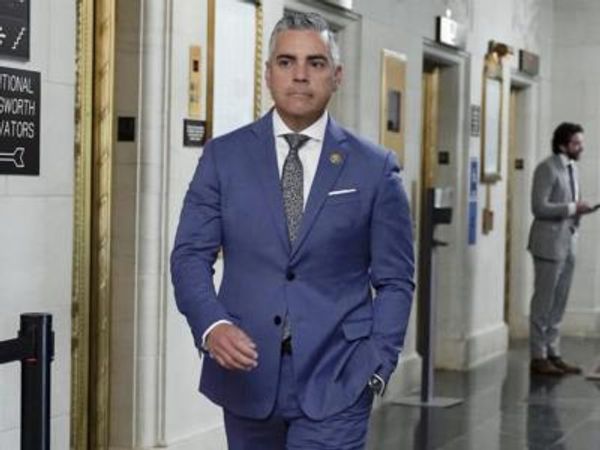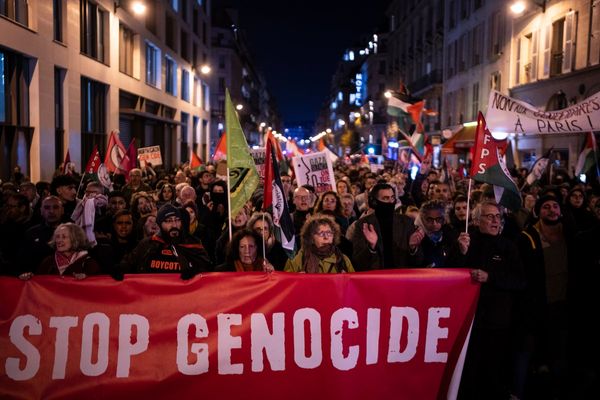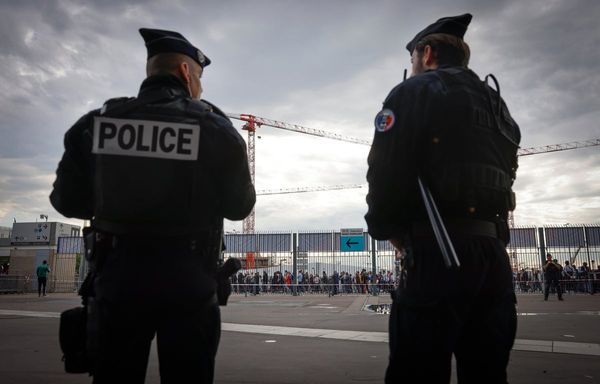Just under five million Ukrainians have registered as refugees across Europe since Russia launched its full-scale invasion of Ukraine on 24 February, according to the UN refugee agency. Nearly 100,000 have ended up in France, where NGOs are working in partnership with local councils to help them. As the war drags on, questions about long-term solutions are now being asked and the strain is beginning to show.
"The Ukraine war has caused one of the largest human displacement crises in the world," the UNHCR said upon the release of its annual report on 16 June, indicating that 4.9 million people had officially registered as refugees in more than 40 countries.
Marking World Refugee Day this Monday, the UN highlighted that the number of people forcibly displaced internationally has now surpassed the 100 million mark.
Beyond those who have fled out of Ukraine, the International Organisation for Migration (IOM) estimates that more than eight million people have been internally displaced.
More than half of the crossings out of Ukraine were into neighbouring Poland, which has registered 3.8 million arrivals. While many went to other neighbouring countries like Hungary, Romania, Slovakia and Moldova.
Most, however, have moved on to other countries across Europe, with some 780,000 Ukrainian refugees registered in Germany, nearly 367,000 in the Czech Republic, and over 118,000 in Spain.
Women and children
The UN says women and children account for 90 percent of those who have fled abroad, with men aged 18 to 60 eligible for military service and unable to leave.
In France, at the end of May there were 93,000 displaced Ukrainians, according to police chief Joseph Zimet, in charge of one of the government’s crisis coordination units. A number he expects to surpass 100,000 by the end of June.
France is hosting most of the Ukrainian refugees in the Paris region, but some have gone to provincial towns.

The Paris City Council opened two gymnasiums used as reception centers prior to a transfer to the "Accueil Ukraine", the Ukrainian refugee reception centre, 15 avenue Ernest Renan, in the 15th arrondissement.
France Terre d’Asile (France Land of Asylum), is one of the dozen NGOs working closely with the Paris council to liase with refugees here and find emergency accommodation either in the capital or elsewhere in France.
So far, there has been adequate infrastructure to manage the short-term needs, Julie Versino, head of communications at the NGO told RFI.
The offers in place are separate to those of other refugees from different zones of the world, not for political reasons, she says but because their cases and administrative demands are quite different.
"The biggest challenge now will be to help these people with their longer-term administrative needs," Versino says, emphasising that France Terre d’Asile has recently opened another centre exclusively for assisting families to get paperwork done, find schools, jobs and other help.

More upheavals to come
But the question of how to manage the long-term situation is creeping in.
Changes have already begun to take place, as people begin to realise they may be stuck here for while.
In the southern city of Marseille for example, a huge cruise ship that had been set up for emergency refugee accommodation was closed on 10 June, with the inhabitants relocated to different locations.
Run by the Corsica Linea company since March, the Méditerranée was the largest centre welcoming refugees from Ukraine in the country, able to accommodate up to 900 people at a time.
The ship was completely transformed to host mostly women and children, with a child-care centre, a bank and an employment agency.
RFI correspondent Laure Lemeille said many of the 400 people still on board on the last day were reluctant to leave the relative calm and comfort of their surroundings, fearful of yet more change and the feeling of starting from scratch in a new place.
As a result, some of them refused the accommodation on offer.
"They don’t want to leave and go to places they don’t know, and don’t want to leave Marseille. Their hopes for a second boat have been dashed so its difficult for them to imagine going elsewhere," Valentine from the NGO SOS Solidarité told RFI.

Different treatment?
The UNHCR has hailed European Union member states which have rapidly activated the bloc's Temporary Protection Directive for the first time, providing special protection and services for Ukrainian refugees.
So far, 3.2 million of them have registered for that status or other similar national protection schemes, the agency said.
But what about other refugees simultaneously fleeing conflict, catastrophe and misery from other corners of the globe? Syrians and Afghans do not come under the EU asylum rules that are applied to Ukrainian refugees.
The differences in treatment depending on nationality has grated on some people’s nerves.
In Paris itself, the government has been criticised for giving priority to Ukrainians over people from other nationalities especially those from African countries.

Ian Brossat is deputy to the mayor for emergency housing for the Paris council. He told RFI’s Stéphane Duguet on Thursday that he was shocked the state wasn’t willing to open up some of the 500 places initially reserved for Ukrainian refugees for other refugees.
Instead, 140 African families who needed to be relocated this week were put up in the city’s gymnasiums.
"Until now the state said it couldn’t help us because there was no space, now they tell us they have space, but it’s only for Ukrainian refugees. I think we need to consider that if people are sleeping in the streets then they need to have somewhere to stay, regardless of their nationality," Brossat says.
The NGO Utopia 56 who helped 7000 refugees last year agreed the state should not differentiate between the needs of Ukrainian refugees and others in similar circumstances.
"What we should be seeing is the right for anyone to get accommodation, the right to work, the right to health. Why should it be several months later for some members of the population?" the NGO’s Yann Manzi told RFI.
The prefecture of police has justified its decision by saying that the emergency accommodation is "not suitable" for more than one night at a time.
African students in France
There is also for example, the catch-22 situation for African students who fled Ukraine.
According to Coumba Kane, a journalist who wrote a report on it for Le Monde Afrique newspaper, some 23,000 African students were in Ukraine when the war broke out, 15,000 of them from francophone countries. Many went home, but others came to France.
Some were able to apply for temporary status but not being Ukrainians, they were unable to apply for longer refugee status, even though they had been in stable situations in Ukraine.
Some have now been told they have to return to their countries of origin and have received official government notices.
Often, they do not wish to return to countries of origin that they had already fled for reasons of personal safety. So they might now consider returning to Ukraine to pick up where they left off.
Clearly the psychological toll on all players in this tragedy will sink in as the months crawl by.
Psychologist Daria Bondar says the problem for those who escaped lies in the contrast between the peaceful life they see around them and the horrors of the war they know from the news from home.
The refugees are "downplaying their feelings and experiences in comparison with the grief of the whole country/other people" and they feel a certain sense of guilt because they are safe in the distance, Bondar said.







